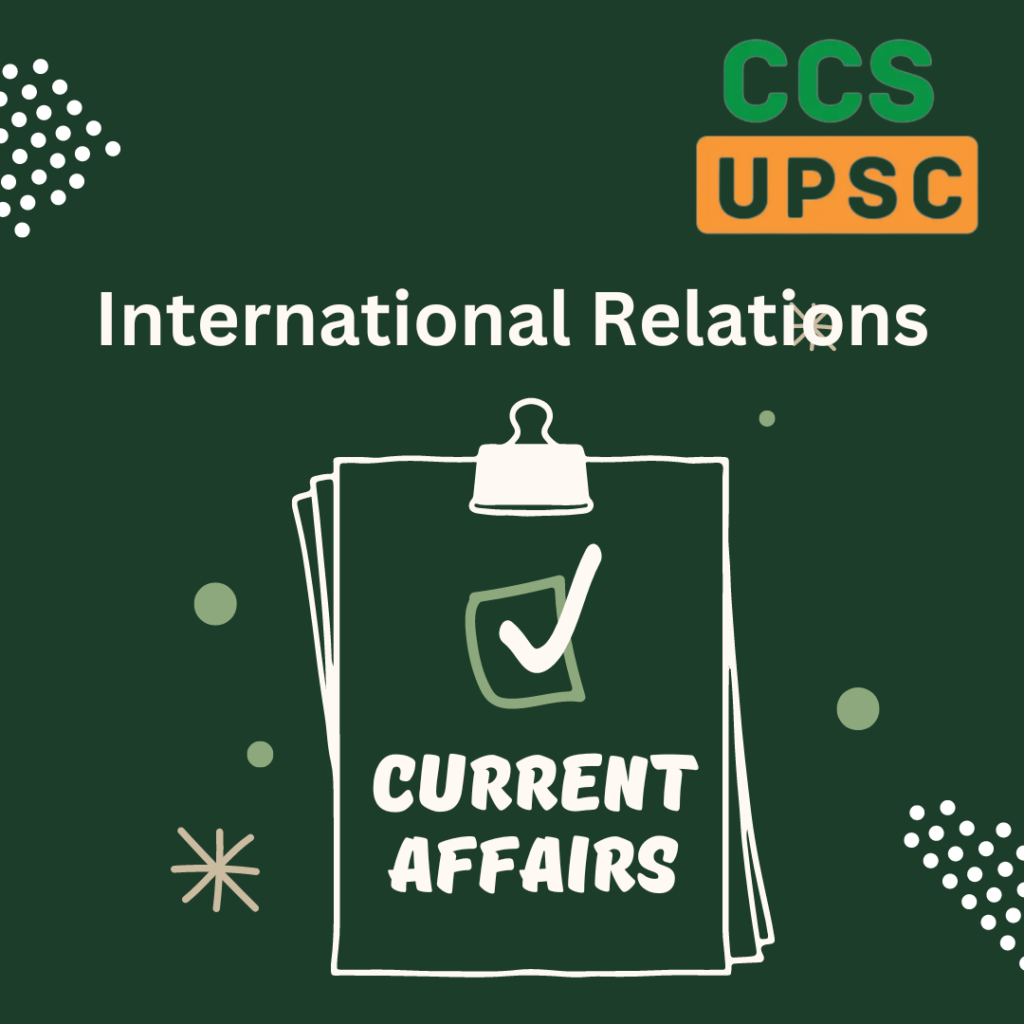Context
∙ Egypt, Ethiopia, Iran, Saudi Arabia, and the United Arab Emirates have joined BRICS as new full members.
About
∙ It was done as per the decision adopted by the 15th BRICS Summit in 2022.
∙ A proposal to admit six countries, including Argentina, into the bloc with effect from January 1.
∙ Argentina’s new President announced withdrawing his country from becoming a member of the BRICS.
About BRICS
∙ BRICS is an acronym that refers to a group of five major emerging national economies: Brazil, Russia, India, China, and South Africa.
∙ The term was originally coined by economist Jim O’Neill in 2001.
∙ BRICS brings together five of the largest developing countries of the world, representing around 41% of the global population, around 24% of the global GDP and around 16% of global trade.
∙ Origin: As a formal grouping, BRIC started after the meeting of the Leaders of Russia, India and China in St. Petersburg on the margins of the G8 Outreach Summit in 2006.
∙ The grouping was formalized during the 1st meeting of BRIC Foreign Ministers on the margins of UNGA in New York in 2006.
∙ The success of the meet led to the crystallisation of an annual summit under the aegis of BRIC.
∙ Initially, the grouping was termed BRIC as South Africa was inducted in 2010 and from there on it has been referred to as BRICS.
∙ Summits: The governments of the BRICS states have met annually at formal summits since 2009.
∙ Over a period of time, BRICS countries have come together to deliberate on important issues under the three pillars of:
∙ political and security,
∙ economic and financial and
∙ cultural and people-to-people exchanges.
∙ New Development Bank: Formerly referred to as the BRICS Development Bank, is a multilateral development bank established by the BRICS states.
∙ The Bank shall support public or private projects through loans, guarantees, equity participation and other financial instruments.
Significance of Expansion
∙ Strengthning the Group: BRICS currently represents around 40% of the world’s population and more than a quarter of the world’s GDP.
∙ With the additions, it will represent almost half the world’s population, and will include three of the world’s biggest oil producers, Saudi Arabia, the UAE and Iran.
∙ Focus on Middle East: With the inclusion of Saudi Arabia, Iran, the UAE, and Egypt, there is a discernible Middle East focus, bearing geo-economic, geostrategic, and geopolitical implications.
∙ Representative of Developing Countries: The addition of new members bolsters the BRICS group’s influence as a representative body of the developing world.
∙ Voice for Global Governance: The grouping now represents a larger share of the world’s population and economy.
∙ However, this only means that the group is potentially a powerful voice for reform of the arrangements for global governance and a powerful actor in these arrangements.
Impact on India’s Position
∙ Chinese Dominance: Among the newly admitted members, India regards each as a valuable partnership to cultivate.
∙ Apprehensions have emerged regarding the potential for the group to become more pro-China, potentially overshadowing India’s influence and concerns.
∙ Although China desires BRICS to embody an anti-western stance, India’s perspective is inclined toward maintaining the group as a “non-Western” entity.
∙ Addressing the Challanges: For BRICS to maintain long-term effectiveness, India and China must address their border disputes and cooperate on complex global matters, including allocating resources for the growth of developing economies.
∙ If India aims to genuinely represent the voice of the Global South, harmonizing these diverse interests into a unified stance could present a more formidable challenge than initially anticipated.
Way Ahead
∙ As the BRICS operates based on consensus-driven decision-making, attaining consensus among 10 countries characterized by diverse economies, geographical locations, and interests proves to be substantially more challenging than doing so among the original five members.
∙ To ensure the continued effectiveness and consistency of the institution, in the long run, BRICS might opt to focus on easier-to-achieve objectives.







